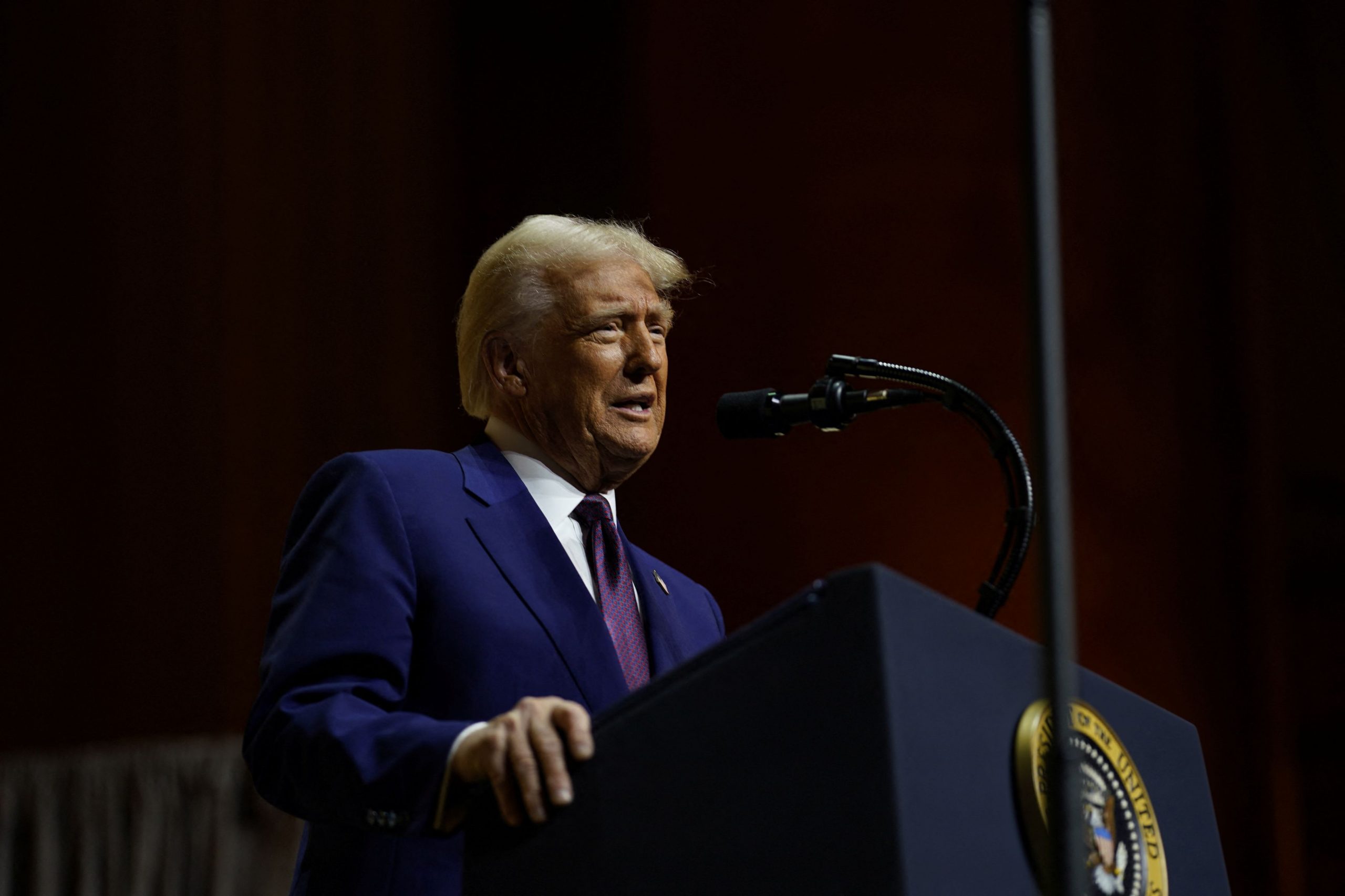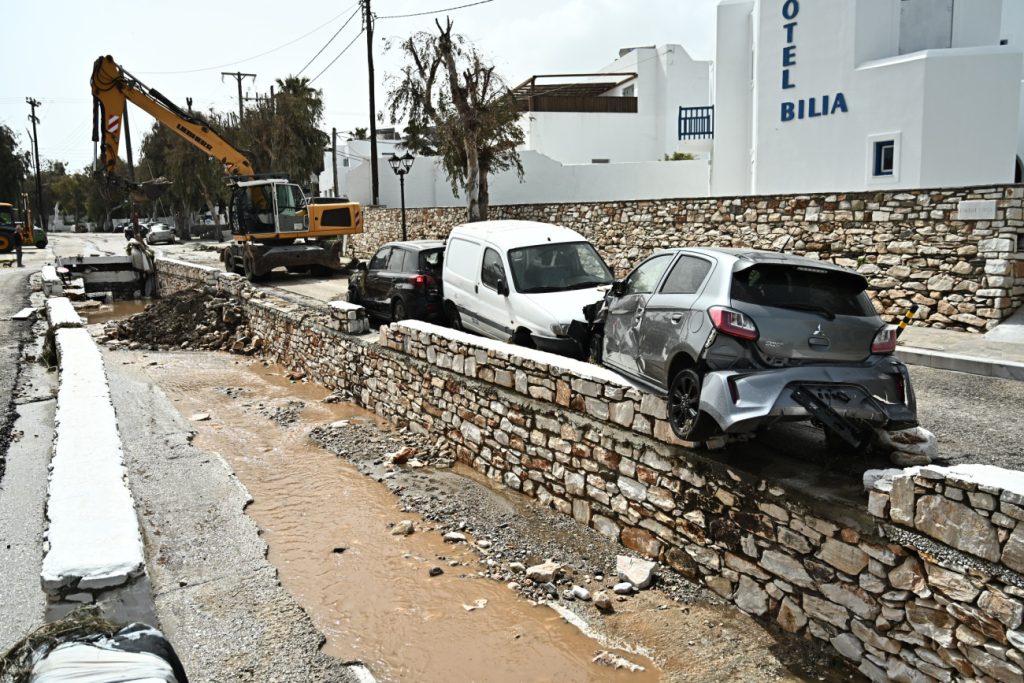In his quest to reshape the American presidency, Donald Trump has embraced an expansive vision of executive authority—one that alarms legal scholars and energizes his base. “He who saves his country does not violate any law,” Trump declared, echoing Napoleon.
But for critics, this vision signals a dangerous shift toward an imperial presidency, challenging the fundamental checks and balances of the U.S. system.
In a conversation with TO BHMA, Harvard constitutional law professor Nicholas Stephanopoulos warns that Trump’s push for total control over the executive branch risks dismantling the modern American administrative state. The consequences, he argues, could be profound: a government increasingly dictated by political loyalty rather than expertise and institutional independence.
Beyond domestic concerns, this expansion of power carries international implications. Trump’s rollback of foreign lobbying regulations has raised concerns that foreign governments -including Turkey- could gain greater influence in Washington with fewer restrictions. This shift, legal experts warn, could reshape U.S. foreign policy in ways that directly affect allies and rivals alike.
A Presidency Without Constraints?
The Trump administration’s legal theory asserts that the president has sole authority over the executive branch, including independent agencies historically insulated from direct presidential control. While some presidents have bristled at these constraints, courts since the New Deal era have upheld the legitimacy of independent commissions. Trump, however, is challenging this precedent head-on.
“Trump is directly attacking the idea that any agency can be insulated, can focus on expertise instead of just doing whatever the president wants,” Stephanopoulos explains. “We will soon have a Supreme Court fight about this, but he is trying to change the basic character of a big part of the executive branch.”
With Trump-backed policies targeting institutions like USAID and the Consumer Financial Protection Bureau, critics argue that his administration is dismantling the very structures designed to ensure government accountability. The Supreme Court’s conservative majority, which includes justices sympathetic to a stronger executive, could play a pivotal role in reshaping constitutional interpretations of presidential power.
Historical Echoes and Risks Ahead
Stephanopoulos notes that while Trump’s efforts are not entirely without precedent, they mark a stark departure from the norms of the past 90 years. “There was a period before the New Deal when presidents had more power over the executive branch. But returning to that era would mean a more politicized, more corrupt, and less expert administration,” he cautions.
Beyond the legal implications, there is also a strategic paradox in Trump’s approach. “Trump and his supporters are missing the point that he is not the last president we are going to have. The same moves he’s making now will be available to the next Democratic president,” Stephanopoulos points out. “Republicans are not going to like it at all if a Democratic president has complete and utter control over every independent agency.”
Legal and Institutional Pushback
Despite Trump’s aggressive approach, the courts have so far blocked several key initiatives. His attempt to end birthright citizenship, mass firings of government officials, and freezing of congressional funding allocations have all been challenged in lower courts. However, the ultimate test lies ahead in the Supreme Court.
“Under current law, much of what Trump is doing is illegal or unconstitutional,” Stephanopoulos notes. “But this Supreme Court may be sympathetic to some of his arguments.” Justices like Brett Kavanaugh and Chief Justice John Roberts have historically advocated for a more powerful presidency, raising the possibility that key elements of Trump’s vision could be upheld.
The Battle Over Foreign Influence and Corruption
Trump’s rollback of the Foreign Agents Registration Act (FARA) enforcement has sparked fresh concerns over foreign influence in Washington. By narrowing the focus of the law to exclude foreign influence operations unless agents work directly for a foreign government, the administration has effectively opened the door to more undisclosed lobbying efforts.
“We are now seeing efforts to return to the 19th century,” Stephanopoulos warns. “That was an era when law enforcement was deeply politicized and corrupt. For those in Greece and elsewhere, this means foreign governments like Turkey now have the green light to engage in all kinds of influence operations without fear of enforcement.”
Is American Democracy at Risk?
When asked whether the U.S. is facing a constitutional crisis, Stephanopoulos is cautious about using the term. “Administrations are always accused of doing unconstitutional things. I think we are just in a general crisis—whether it’s constitutional or political, the label may not matter,” he says. “What matters is that we now have a president refusing to follow the law in a substantial number of areas.”
As Trump’s legal battles escalate, Congress and the judiciary remain key players in checking presidential overreach, but their ability to do so will depend on both political will and legal precedent.



